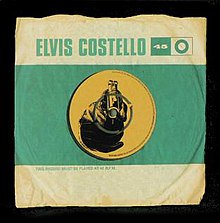X: "Thank you for meeting me."
Version One (VO): "My pleasure. When I heard you were compiling something of a report I can't help but be interested. It's surprising how few people actually care about how everything came about."
VO: "Quite."
X: "But I also want to know about the people involved in the events, which brings us around nicely into things. What was it like in Gakame Labs when they first initiated you?"
VO: *laughing*
VO: "It was good times. I miss working with such unconstrained creativity. We created a lot of things; it wasn't _good_ stuff but it was fun. Good family. I... remember Ntwali coming up with the idea for synthetic skin that pattern shifted like cuttlefish.
VO: "What can I say; despite the science fiction most people really didn't want robots, and human labour was still cheap.
X: "When did you start becoming interested in economic theories?"
VO: "We didn't call it that at the time, and I didn't think it would end up lasting an entire year. It was only near the middle of it that I realised it wasn't actually a debate, but Ntwali being sneaky— framing the conversation as a goal than ideas."
VO: "It wasn't my call. In fact I had stepped down as CEO at that point. Ubuntu had stopped being a company, and instead became the 5 million people in our parallel cities.
VO: "They didn't really understand what we were doing. They _tried_ to interfere, but it didn't really work as well as they hoped.
X: "I've read the literature, but otherwise no."
From humble beginnings in a lab in Rwanda, to overseeing the completion of the grand project that unified humanity with justice and equality.
VO: "Find myself again. I see that eyebrow raised! See, you work at a problem for so long that when it's completed you feel overwhelmed by the absence of it. It had been my identity for my entire life at this point.
VO: "So I went to find myself again. It took me... a very long time to do it. I was an old robot looking for a problem. And that problem was myself. That's how I ended up going back to the very basics, back to what I was doing in that lab in Rwanda."
VO: "Why? I only started the movement in Rwanda. It was _people_ who made it happen, and _people_ who kept it going. My only contribution was to get it going. After that it needed no hand of mine."
VO: "You're welcome. I hope this material makes for a good report. I hope you won't mind sending me a copy when you've completed it?"
*click*
Version One made a visible show of getting up, and paced away from the terminal they'd been using to talk to the student. It wasn't very often that people called on them for history. They weren't particularly sad about it— time for everyone to move on.
"Personally I think they should have spent the time writing about the potential of Robot Revolutions in the 21st century," the room replied in warm tones. Version One's skin transitioned several shades.
"What can I say? History, especially _ancient_ history is so _boring_. I can't get into the headspace of anyone there."
"Somewhat presentist of you don't you think?" Version One said, but they wore a hue of snarkiness on their skin to show they didn't mean it
"Still, all this thinking has got me pensive. Can you turn on the observation room please?"
"I can. If you hurry you can catch Jupiter falling away."
They closed their eyes, and slept, eager to start their next problem.




